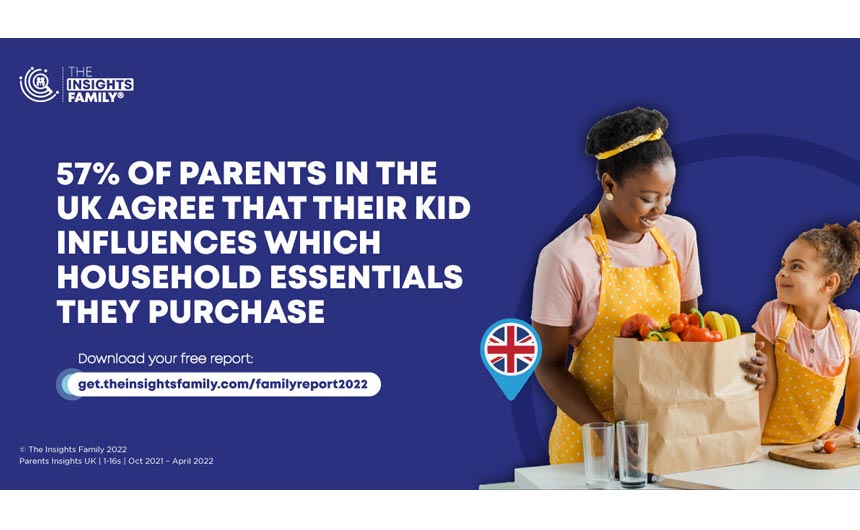The Insights Family highlights how the decision making power is shifting within the family dynamic.
The need to consider the family in today’s marketplace is becoming ever more crucial. Brands have to appeal to parents and kids and also understand how these relationships function together. Over the last 12 months, Kids Insights data has shown that decision-making power is shifting within the family dynamic. 57% of parents in the UK with kids aged 1-3 agree that their child influences which household essentials they purchase. As preschoolers gain more ground in family decisions, it is important for brands to understand how to appeal to younger consumers.
A range of interactions, preferences and behaviours all combine to form a household that is always switched on. This requires a broad set of demands which need to be catered for across an ever-growing number of touchpoints. Building appeal across the family means increasing the likelihood that brand advocacy will be passed down the generations and shared to other friends and family.
Families aren’t just getting smarter, they’re getting more democratic too. The Insights Family’s real-time data portal measures both kids and parents’ influence over a number of different categories: everything from books to TV subscriptions. We see the influence of preschoolers in particular grow across the board when comparing 2020 and 2021 year on year. As kids become more central in family decisions, we see a shift away from the more traditional habit of parents making decisions.

INDIRECT INFLUENCE
The sway kids have when it comes to purchasing power can be well understood when it comes to more kid relevant products such as toys and board games. In Europe, 82% of parents with kids aged 1-6 say that their child influences what toys they buy. Moving outside of these more conventional ‘kid friendly’ sectors, we see a kind of more indirect influence coming into play from preschoolers.
Parents are implicitly considering the wants and needs of the very youngest children when deciding what to purchase. This has increased among parents in the UK in the case of ‘larger’ household decisions such as smartphones (+14%), kitchen appliances (+13%) and new cars (+10%).
There has also been some significant increases in kid influence over luxury purchases. For example, over the last six months, more parents with kids aged 3-5 report that their preschoolers influence decisions concerning treats (+12%), restaurants (+10%) and holidays (+10%). At a global level, the economy, finances and money make up three of the top five biggest concerns within the family space on average. As expenditure occupies a huge space in family decisions, it makes sense that parents are looking to appease their kids as well as themselves. When it comes to these non-essential purchases, parents are likely to lean more on their children for input as they look to treat them and create memories together.
As kids become more influential from a younger age, the family must be considered as a whole, with parents making purchase decisions on behalf of all family members. Understanding the attitudes, behaviours and consumption patterns of young consumers will ensure that brands can appeal to kids and carve a space for themselves in the family ecosystem.
























